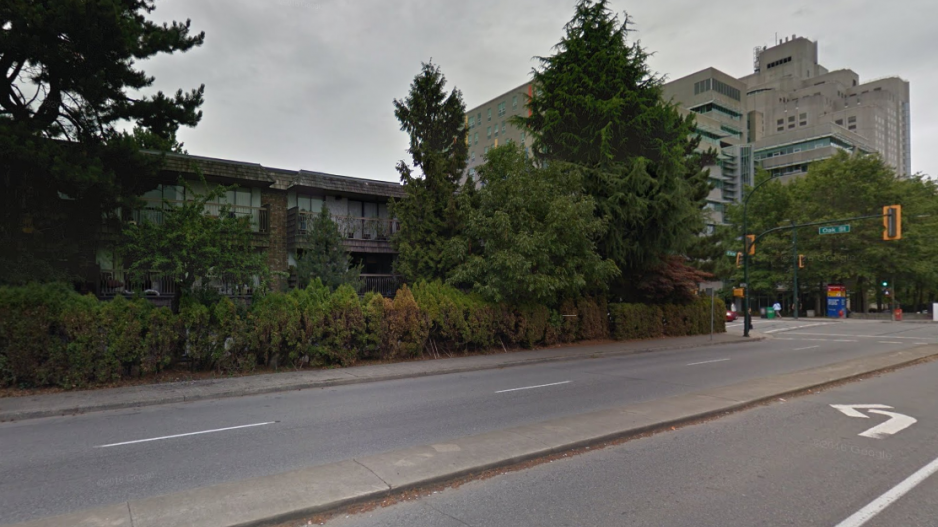A petition to wind up a strata corporation and allow a 30-unit residential building to be sold to a numbered company for $21.5 million, despite opposition from two owners, has been mired in court delays since it was filed on December 14.
A judge was originally set to hear the petition on February 3 but the case was adjourned until February 20. The case is now adjourned again, until March 20, because four of the owners in the complex are appealing their property assessments.
“They’re in the odd position of appealing their assessments to try to have them go up,” said Lawson Lundell partner Peter Roberts, whose firm filed the petition for owners at Twelve Oaks, or 2777 Oak Street, which is at the corner of West 12th Avenue.
“The property assessment review panel is supposed to make a decision by March 15.”
This case is significant because it is the first petition to wind up a strata corporation since B.C. passed a law, known as Bill 40, making it easier for condominium owners to sell their complexes without achieving a unanimous vote of all owners. The new law allows owners in strata corporations to vote by an 80% majority in order to have the attempt to wind up the strata corporation head to court for a judge's approval. The judge assesses whether the sale would be significantly unfair to any of the owners who oppose the sale and may rule that the sale is not able to take place.
Business in Vancouver first reported on this case in January.
Twelve Oaks' combined 2016 assessed value is $10,630,300, which is less than half what the numbered company has offered to pay for the three-storey, wood-frame building that sits on a 18,753-square-foot corner lot.
Exactly how proceeds are divvied up after strata corporations successfully wind up is determined by laws and based largely on the age of the building.
In this case, the method of dividing up the proceeds for the 1973-built Twelve Oaks project is based on the assessed values of the units.
Condominium buildings built between August 1974 and July 2000 have a schedule of “interest upon destruction” in their strata plans.
That schedule sets out the relative value of each strata unit based on a developer’s estimate of that unit’s value back when the building was built. BIV reported on these intricacies in December.
That is why proceeds at the Brandywine project in Coquitlam, which BIV covered last week, are set to be divided up based on arbitrary assessments that a developer made when the project was built in 1978.
That case is also waiting to be heard in court.
Some Brandywine owners told BIV that they are opposed to selling their unit in the wind-up in part because they would receive more money if the proceeds were divided up based on square footage or assessed values.
Anthem Properties wants to spend $32 million to buy the 58-unit Brandywine project. It hopes to get the city's approval to build hundreds of units on the site.
The only recent major sale of a condominium project where there was no unanimity among owners was at Seymour Estates in North Vancouver. Anthem Properties bought that site for $51 million in a deal that closed in January.
Seymour Estates, however, did not involve a strata corporation but rather a common-law condominium corporation – an ownership structure that the B.C. government has banned for decades.
Strata corporations involve multiple owners with each owning a separate title to a unit. In common-law condominium corporations, owners each own a share of a single legal entity that owns the entire site.




